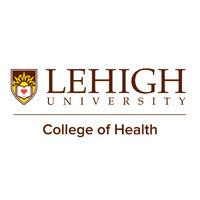Children’s Environmental Precision Health Institute (CEPH)
Does cancer begin when you are growing in the womb? How do your inherent susceptibility factors (e.g., genome, adductome, and transcriptome) interact with environmental exposures (e.g., airborne toxics) as well as physical home indoor, neighborhood, school conditions to increase your risk of asthma, allergies, and obesity? Are you more susceptible to such diseases if exposed to environmental toxics as a fetus or an infant? These are some of the questions Children’s Environmental Precision Health (CEPH) Institute aims to answer. A better understanding will help us detect, intervene, and prevent high-risk infants and toddlers from developing irreversible impairment to reaching their physical and intellectual potential. Students will play a critical role during the inquiry process at CEPH Institute.
Research Areas
The Institute’s mission is to improve children’s health and well-being through the following research, education, and service activities:
- Early-life origins of obesity-associated asthma sub-species: To date, it remains unknown how many actual diseases reside within the umbrella term, asthma. Identifying distinct subspecies of asthma is important because only one treatment strategy exists worldwide. One of the main goals of our ongoing investigations is to speciate asthma into concrete disease entities characterized in terms of underlying mechanistic processes. Successful speciation is expected to yield more precise and effective intervention approaches.
- Sexual dimorphism: Another critical goal of the CEPH investigators is to understand why males and females differ in their vulnerability to environmental pollutants.
- Environmental justice within Pennsylvania: To date, the community-level disparity in environmental pollutant exposures is often ignored in determining the justice needs and goals. Projects within CEPH aim to propose a novel definition of Pennsylvania’s environmental justice target regions in terms of disparity in health outcomes, pollution exposures, and socioeconomic indicators.
Educational goals
One of the unique strengths of CEPH Institute is integrating undergraduate, graduate, and Ph.D. students into research through both short-term and long-term projects. CEPH has three educational missions and goals:
- Train students in environmental health science research: CEPH aims to provide students with opportunities to participate in existing research programs.
- Cultivate confidence: The projects in CEPH are designed to engage students as independent investigators rather than mere observers and apprentices. Starting from the first year of engagement, the students are encouraged to publish and present their findings at national research conferences.
- Collaborate through team science: Working well within a team of peers represents an essential experience for the students. The students are expected to benefit from mutual mentoring and collective problem solving as multi-disciplinary team members.
Service
CEPH will engage with community members to develop individual- and community-level strategies to reduce exposures to harmful environmental pollutants and prevent the risks. Student-led community-oriented engagement projects will be created and supervised. Two service goals are as follows:
- Learn from the community members: Focus on better understanding the barriers to prevention and management through deep engagement with the Lehigh Valley community members.
- Deepen the partnership: The CEPH will also organize free information-sharing sessions for Lehigh Valley community families.
Affiliated Faculty

Karen Beck-Pooley, PhD
Professor of Practice, Political Science, Lehigh University

Aimin Chen, MD, PhD
Professor of Epidemiology, Perelman School of Medicine, University of Pennsylvania

Hyunok Choi, PhD, MPH
Associate Professor, Department of Population Health; Director, Children’s Environmental Precision Health Institute

Lifang He, PhD
Computer Science & Engineering, Assistant Professor, Lehigh University

Suk-Mei Ho, PhD
Vice-Provost for Research and Professor, University of Arkansas

Breena Holland, PhD
Political Science, Associate Professor, Lehigh University

Jeremy Mack, MS
Geospacial Data Visualization Specialist, LTS, Lehigh University

Dr. John Spengler, PhD
Akira Yamaguchi Professor of Environmental Health and Human Habitation, Harvard T. H. Chan School of Public Health

Dimitrios Vavylonis, PhD
Professor, Department of Physics, Lehigh University

Fathima Wakeel, PhD, MPH
Associate Professor, Department of Population Health; Director, PhD

Bin Zhang, PhD
Professor of Genetics and Genomic Sciences and Pharmacological Sciences, Mount Sinai School of Medicine
Contact
Name: Prof. Hyunok Choi, PhD, MPH
Title: Associate Professor
Director, Children’s Environmental Precision Health Institute
Email: hyc219@lehigh.edu